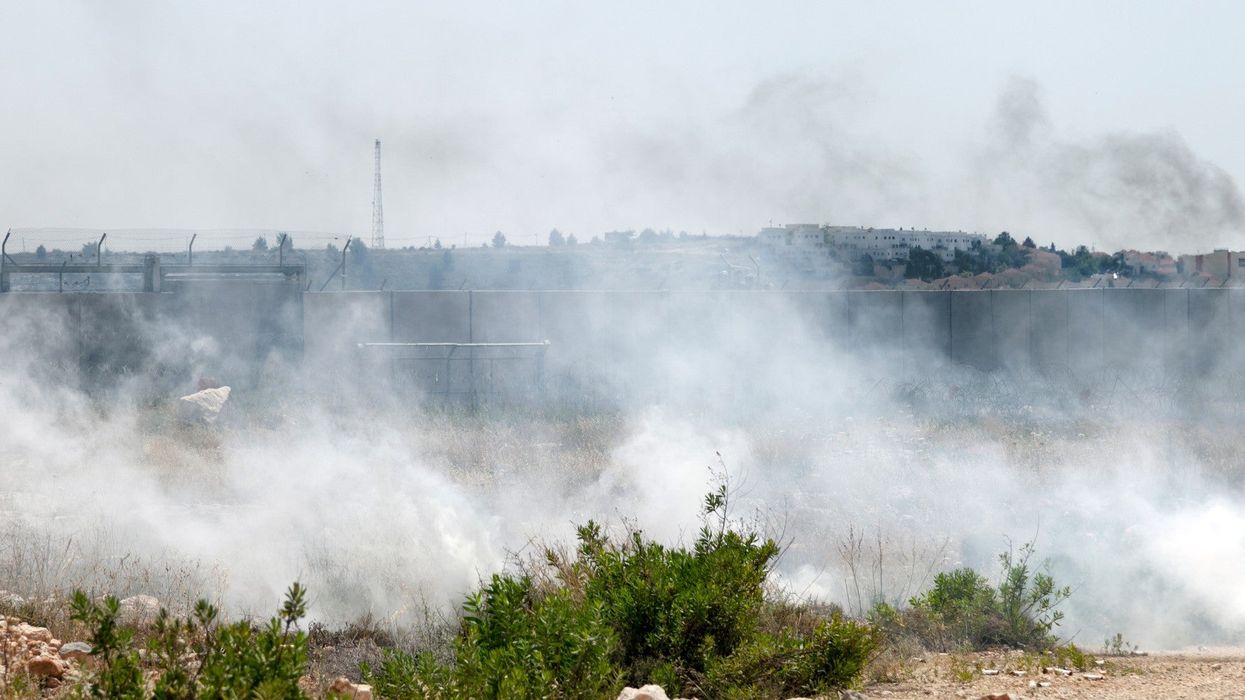Celebrities
Anas Abu Srour
Jun 23, 2020

iStock
In recent weeks, we have watched as US police forces responded to Black Lives Matter protests with baton charges and tear gas, images shared around the world on TV and social media.
For most of those demonstrators, this will have been their first, eye-stinging, throat-choking, experience of tear gas. Here in Aida refugee camp in the occupied West Bank, however, tear gas is a part of everyday life.
Home to Palestinian families expelled by Israeli forces in 1948, it’s a densely-packed area, with some 6,000 people living in a 0.071 km2 piece of northern Bethlehem. Having lived my whole life here, I’ve experienced first-hand just how devastating it is to be exposed to tear gas on a routine basis.
Our camp may actually be the most exposed community in the world. According to research conducted by UC Berkeley School of Law’s Human Rights Centre in 2017, a staggering 100 percent of Aida’s residents surveyed had been exposed to tear gas in the past year – and mostly while at home.
The situation hasn’t improved since then. Palestinians all over the occupied West Bank and Gaza Strip are regularly subjected to tear gas at the hands of Israeli forces; more than 26,000 Palestinians have required medical treatment for tear gas inhalation just over the last three years.
In April, Save the Children documented tear gas attacks against Palestinian students in and around schools, with many such incidents. Amnesty International has included Israeli forces in its just-published research on the “disturbing global trend” of tear gas being used to suppress dissent.
Tear gas isn't just a form of physical and psychological subjugation – it plays havoc with the human body too.
But what does it actually feel like?
Some people hear ‘tear gas’ and assume its effects are limited to making you cry. In fact, it is so much worse. You feel like you can’t breathe, like you’re inhaling gas rather than oxygen, and your nose, eyes, and throat feel like they’re burning. You can’t think of anything but survival.
When I was a child growing up in the camp, I always thought about an escape plan. Wherever I happened to be playing or relaxing, I would always know how to get out in a hurry, so that when Israeli forces shot tear gas, I could run away.
Tear gas causes many health complications for camp residents, from babies to the elderly and everyone in between. Children get exposed to tear gas and are afraid to return to the same place to play. In 2014, 45-year-old mother Noha Katamish died after tear gas was fired into her living room.
Just like the protesters being tear gassed by police for protesting structural racism, tear gas is just one tool of oppression within a bigger system. Aida is hemmed in by Israel’s Separation Wall, watchtowers and a military base. This barrier restricts our movement and also has a big impact on our mental health. My friend’s young son recently asked his father if there is anything at all beyond the Wall; this is the reality into which he was born.
Israeli forces frequently provoke the camp residents with raids and vandalism, using loudspeakers to mock Palestinians and our struggle. On other occasions, when a Palestinian is killed by the Israeli army in Bethlehem or in another city, some of our camp’s residents express their anger with protests directed at the army base adjacent to the camp.
Whether we are protesting, resisting, or just going about our daily lives, tear gas is a way for the Israeli army to assert its presence and domination.
The smell, the taste and the sting of tear gas is a constant presence in my life.
And I recognise this kind of brutality in the way that US police officers have behaved towards black Americans and towards demonstrators.
Those out in the streets demanding their rights should be proud of what they are doing: protesting for a just cause .
For me, here in Aida camp, I believe it is vital to keep demanding your rights. In Palestine and the US, despite the use of tear gas and other methods intended to subjugate protests and make people scared, we must show that this will not prevent us from continuing our beautiful resistance.
Anas Abu Srour is the director of Aida Youth Centre.
Top 100
The Conversation (0)













